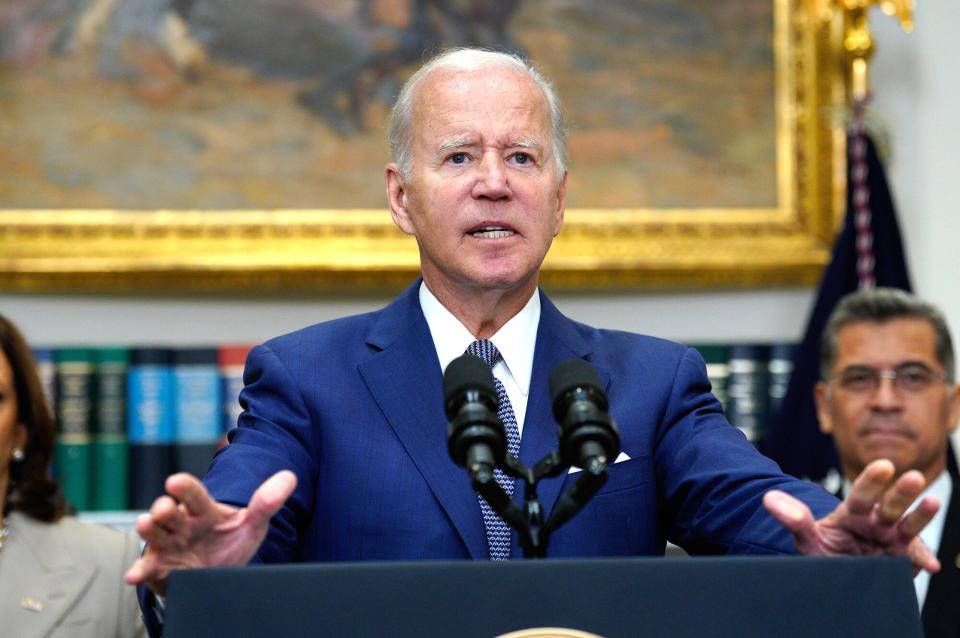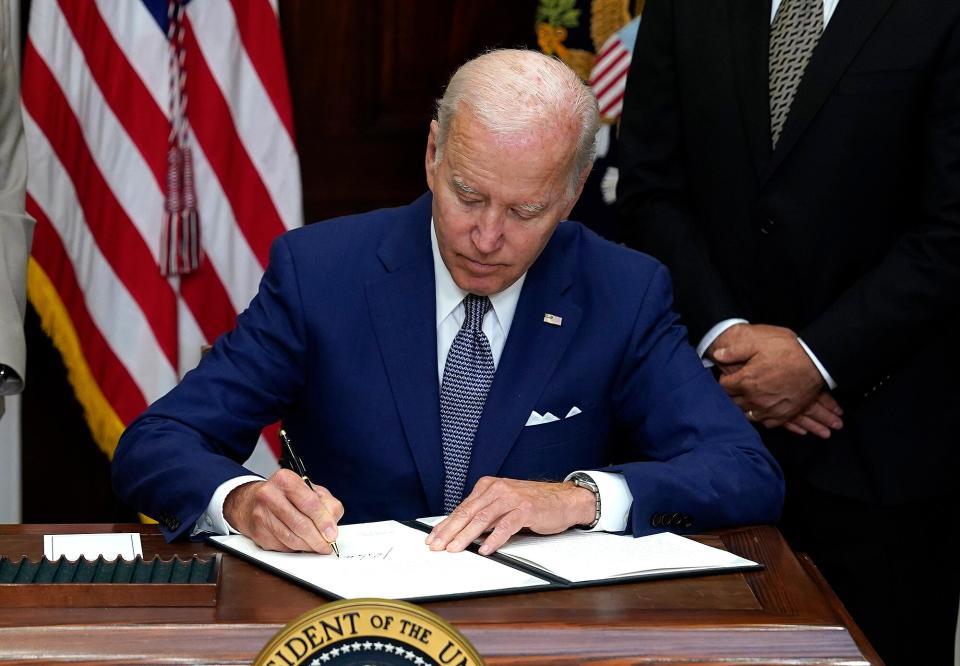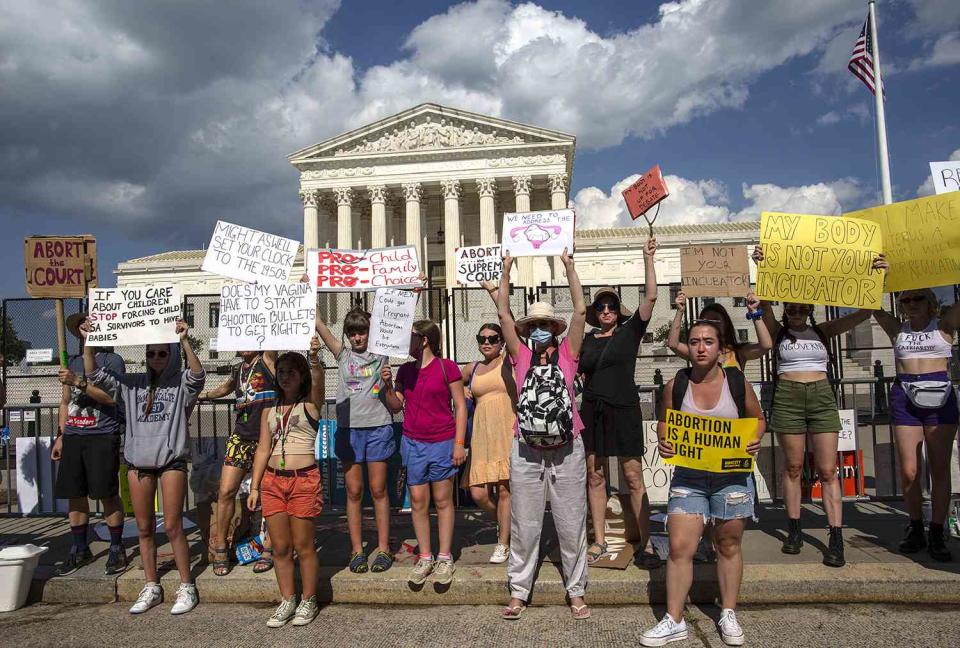President Joe Biden Signs Executive Order to Protect Abortion Access

- Oops!Something went wrong.Please try again later.
President Joe Biden signed an executive order Friday to ensure access to abortion two weeks after the Supreme Court's decision to overturn Roe v. Wade.
The executive order vows to "ensure the safety of patients, providers, and third parties" who have abortions or provide abortion services.
Additionally, the order calls on the Department of Health and Human Services to submit a report in 30 days detailing steps to take that can protect medication abortion, expand access to emergency contraceptives, and increase education about reproductive healthcare services.

Yuri Gripas/Abaca/Bloomberg/Getty
While speaking in the White House's Roosevelt Room alongside Vice President Kamala Harris and Human Services Secretary Xavier Becerra, Biden urged the American people to assert their political power by voting for their abortion rights in the upcoming November elections.
Despite the executive order, Biden stressed that political change is needed in order restore the rights lost by the overturn of Roe.
"I'm asking the Justice Department that, much like they did in the Civil Rights era, to do everything in their power to protect these women seeking to invoke their rights," Biden said Friday.

Yuri Gripas/Abaca/Bloomberg/Getty
Never miss a story — sign up for PEOPLE's free daily newsletter to stay up-to-date on the best of what PEOPLE has to offer, from juicy celebrity news to compelling human interest stories.
Executive orders are signed directives from the president, which don't require Congressional approval, that manages operations of the federal government.
Though Congress can't pass laws to overturn an executive order, it can pass legislation that makes it difficult, or even impossible, to carry out the order, for example by removing funding. An executive order can be revoked by the president who issued it and a president has the ability to revoke executive orders issued by a predecessor.
Biden has stated repeatedly that he doesn't have the authority as president to restore the right to abortion himself.
"The only way we can secure a woman's right to choose and the balance that existed is for Congress to restore the protections of Roe v. Wade as federal law," he previously explained. "No executive action from the president can do that."
RELATED: President Biden Calls on Congress to End Filibuster and Codify Roe v. Wade Into Law

Probal Rashid/LightRocket via Getty Images
Shortly after the Supreme Court's decision to overturn Roe v. Wade, Biden announced during a news conference that he believes in a woman's right to make choices about her reproductive health.
"The most important thing to be clear about is I believe we have to codify Roe v. Wade in the law," he said when asked by an audience member what executive action he would use to guarantee abortion rights. "The way to do that is to make sure the Congress votes to do that, and if the filibuster gets in the way, it's like voting rights – it should be (that) we provide an exception to this … requiring an exception to the filibuster for this action to deal with the Supreme Court decision."
Filibuster rules are the longstanding Senate practice of requiring a 60-vote minimum to pass legislation. Currently, the Senate does not have the 60 votes needed to codify Roe v. Wade, The New York Times reports.
Roe v. Wade is a landmark Supreme Court decision of 1973 that granted women the right to an abortion in every state.
Last month's 6-to-3 ruling reversed nearly 50 years of precedent, giving states the power to pass their own laws around abortion. Since the decision, Arkansas, Kentucky, Louisiana, Missouri, Mississippi and South Dakota have already banned abortion in their states, after putting trigger laws in place that governors enacted following the SCOTUS ruling.
Protests have since erupted around the country, and Biden has doubled down on his pro-choice support. The decision comes after the SCOTUS opinion was leaked to Politico in May. A poll conducted by CNN has since found that 66% of Americans did not want Roe v. Wade to be overturned.

